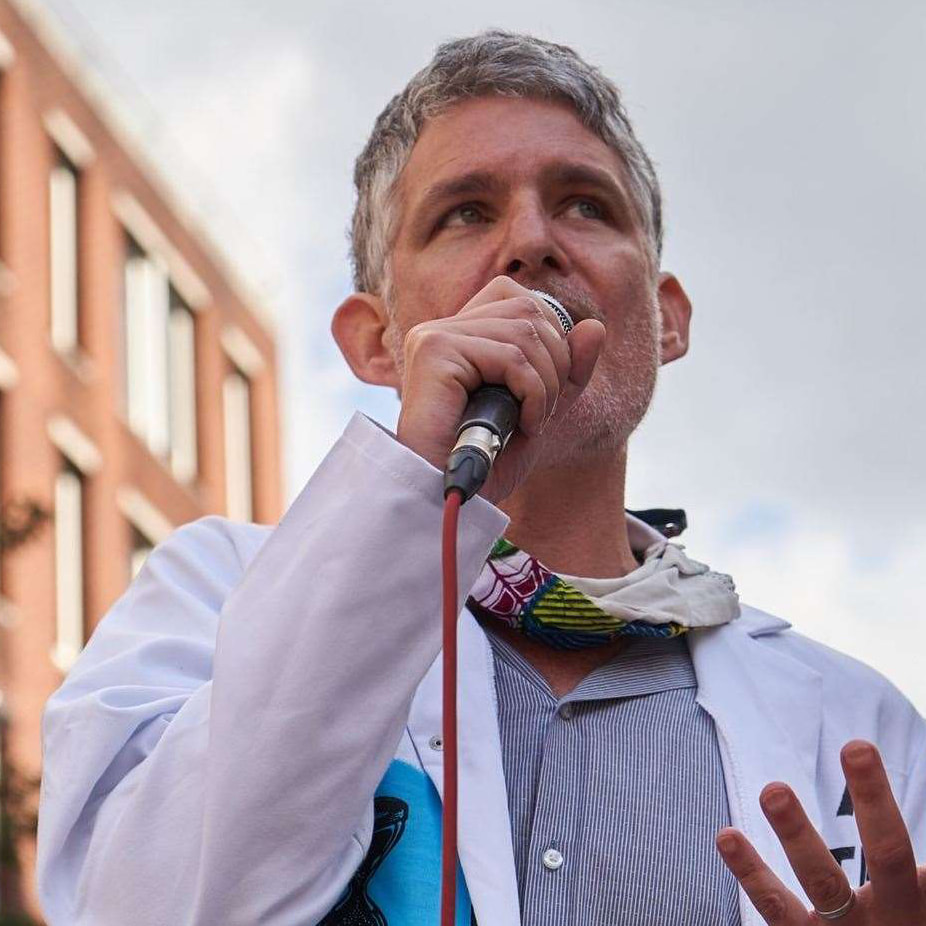Activism |
|
What drove you to activism? Teaching. Five or six years ago, I was standing in front of a lecture theatre, full of young people who are going to suffer the consequences of climate change much more than I am. I couldn’t stand that I wasn’t doing everything I could. When Extinction Rebellion (XR) was launched in the United Kingdom in October 2018, it felt like the answer. As conservationists, we silently wish that members of the general public cared more about the destruction of nature. Now they are taking to the streets and I have this moral obligation to be there in support.
How have you been working with Scientists for XR? In October 2019, a group of scientists came together to create Scientists for XR, which has carried out many actions. These include pasting scientific papers to the walls of the London headquarters of News Corp in 2021 in protest against inadequate climate-change coverage in the company’s newspapers. The group has different functions. One is to provide scientific support for the wider XR movement, so that it remains founded on solid scientific ground. And a second is to advocate. Scientists vocally supporting XR sends a powerful message. Society trusts scientists. A third function is direct action. Scientists for XR groups have been involved in a number of XR events, such as marches and roadblocks. For example, at the 2021 opening of a London Science Museum exhibition sponsored by oil and gas company Shell, some scientists locked themselves to parts of the exhibition in protest against the sponsorship, while our scientist group set up a table outside to demonstrate principles of atmospheric cooling to engage with the public. Events such as this serve to highlight the issue of science museums accepting sponsorship from fossil-fuel companies. How can scientists dip their toes into this type of work? What the public sees of these direct actions is the tip of the iceberg. For every person out on the streets, there are 20 more behind the scenes involved in other tasks: organizing, producing press releases, baking cakes for marchers. Whatever you enjoy doing and have skills in, there is a role for you. Taking part does not have to involve engaging in civil disobedience yourself, or putting yourself in a risky position. One of the most important jobs at a protest is for people to stand at the edges, engaging the public in conversations. That’s a role that scientists can perform fantastically. How have your advocacy and activism benefited you? There’s this crazy notion that scientists shouldn’t speak out because it will damage their reputations. But activism has had the opposite effect on my career. My research is based on conservation in Madagascar; it’s fairly niche. I previously had no global reputation. Since becoming a vocal scientist-activist, my reputation and my visibility as a scientist have soared. Also, activism is great for my mental health. Knowing I’m doing what I can is important to me. There are simply the best people in these movements, and there’s a sense of community. Does being a vocal activist diminish your scientific credibility? Popular perception holds that scientists must be neutral purveyors of information and not speak up about what that information means. Somehow, if we do so, it could damage our credibility. But when scientists take personal risks and make personal sacrifices, that communicates the urgency of the situation in an important way. If scientists are saying that it’s time for action, but not acting themselves, that undermines their own arguments. How do you balance your academic responsibilities with advocacy? For five years, I worked half-time at the University of Kent. I did this deliberately, to allow me the freedom to engage in other activities, including conservation consultancy, activism and writing popular non-fiction. I left that post last year, partly to focus on activism and writing, and partly out of frustration with the precarity of academic life. There are things that enable me to be less single-minded in the pursuit of my career: I come from a position of relative privilege; I’m not interested in accumulating money; and I don’t have children. So I think academia has been a good fit for me, but only because it doesn’t fill my life. This interview was first published on 22 February 2022 on www.nature.com |

